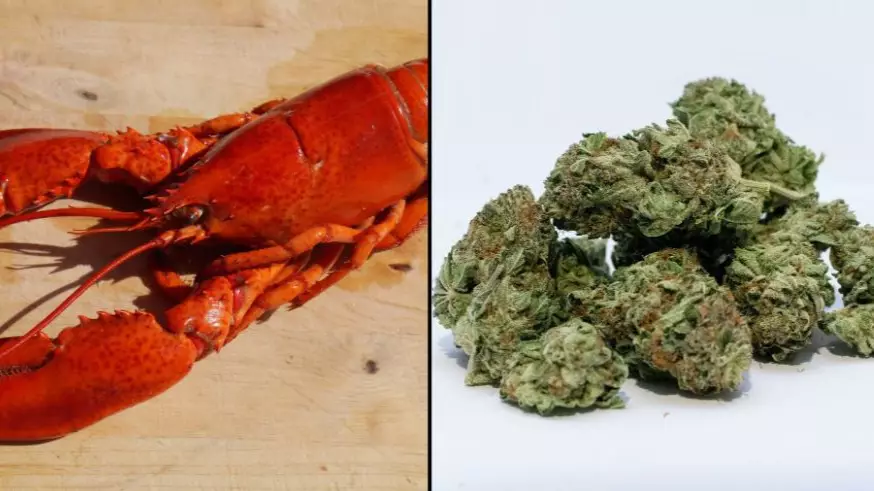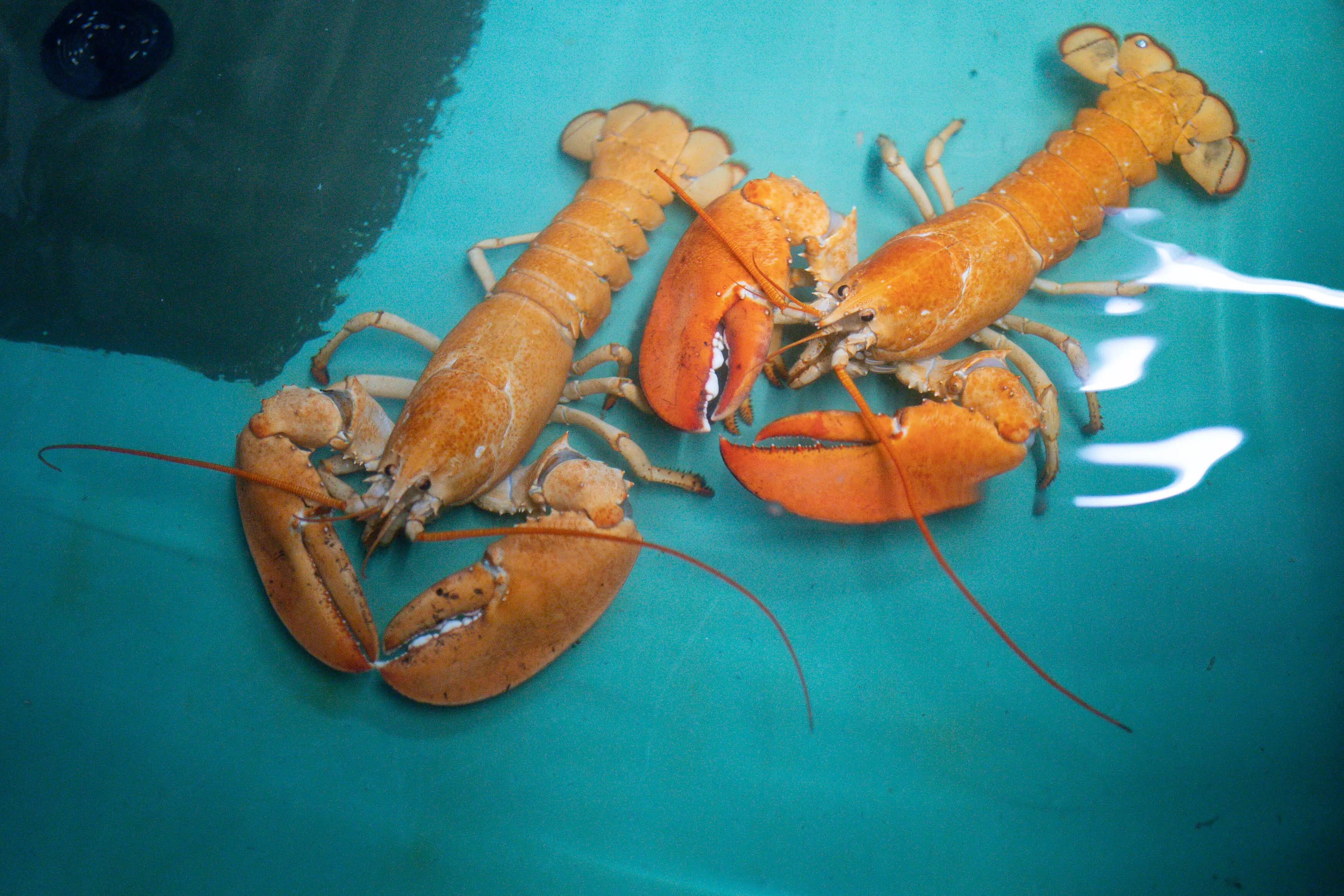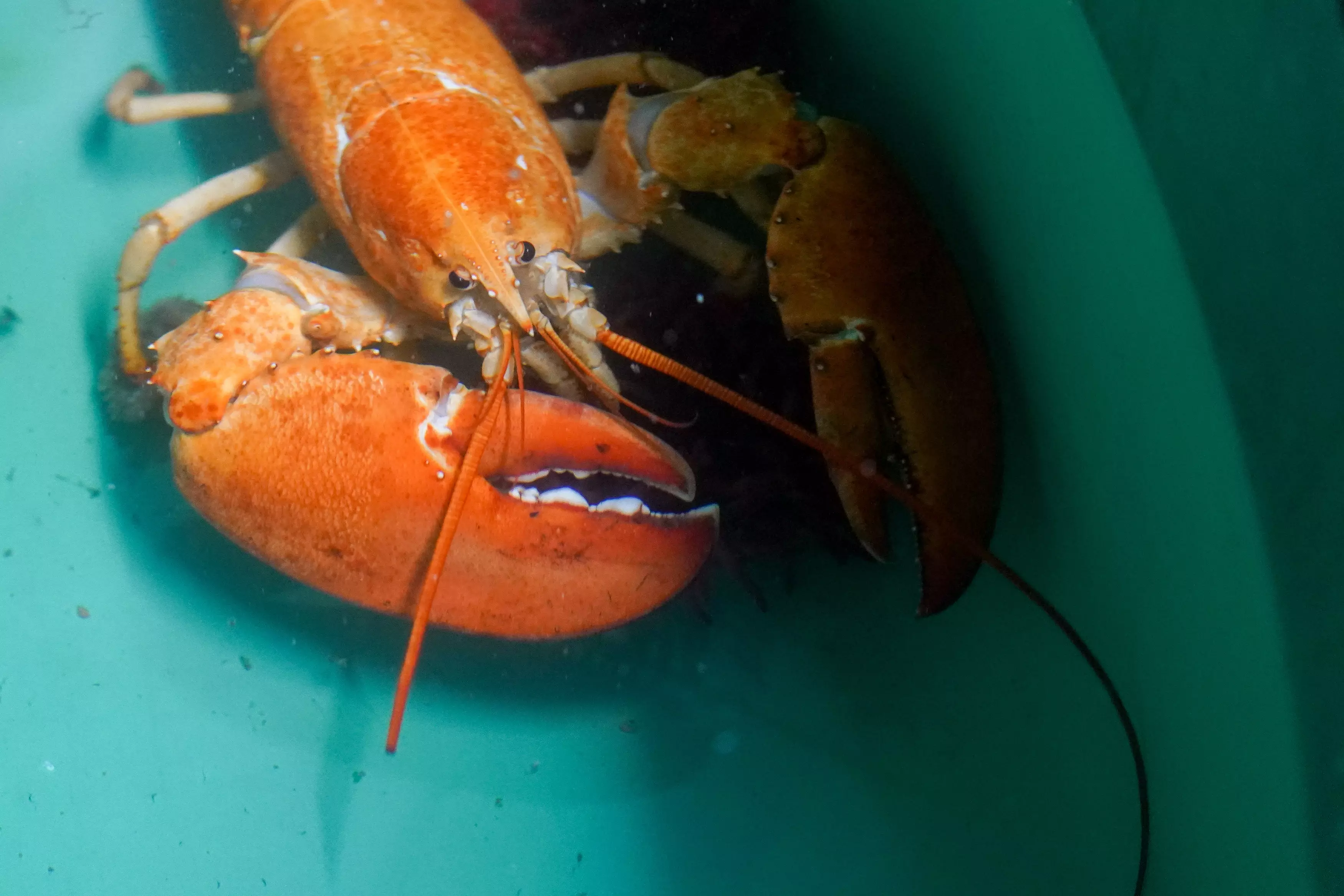
Regardless of whether or not you've cooked a lobster before you're probably aware the little guys are boiled or steamed alive.
As the water begins to boil you can place the lobster inside and wait. Many people will see the animal's tail twitching as well as other reflex responses but, contrary to the popular belief that they scream, lobsters don't have vocal cords.
Despite not knowing the full extent of their suffering, it's fair to say most of us would prefer that they were cooked in a more humane way. Say... get them really high first?

Well one restauranteur has tested her theory and hotboxed some lobsters. Off the back of her results, a team of scientists then did some research of their own.
Advert
A team at the University of California San Diego have written a paper in pre-print (this just means that their work hasn't been published or peer reviewed at the moment) analysing the impact THC (the compound that gets you baked) has on lobsters.
According to Modern Farmer, the team tested variables such as how much and how fast the little fellas moved after they were exposed to THC for up to an hour.
They also had a look to see how much THC was present in the lobster tissue after exposure. Meaning - no one wants to give this the green light and then get a load of diners stoned.

Interestingly, their findings showed the lobsters' motion and movement slowed down, although it didn't significantly alter their reactions to heat.
Advert
They noted that 'further experimentation would be required to fully investigate other behavioral outcomes, including anxiety-like measures'.
The research came off the back of restaurateur Charlotte Gill's own investigations. At the time Gill owned Charlotte's Legendary Lobster Pound in Southwest Harbor, Maine.
Wanting to become more legendary, Charlotte started experimenting with cannabis smoke and with a medical marijuana license it wasn't difficult for her to conduct.
She was adamant she never served the lobsters to customers, but explained how her dad tried them and there was no noticeable THC taste and no THC showed up in an over-the-counter urine test that he took afterwards.
Advert
In fact, she said the meat was 'sweeter and lighter, because it doesn't have the same stress hormone or the stress hormone is so minimal'.
Charlotte was told to stop getting the animals high by Maine's health department so now she uses a Valerian vapor compound on all of the lobsters. That is a recognised food additive but she claims it works around 75 percent as well as marijuana.
Featured Image Credit: Pixabay